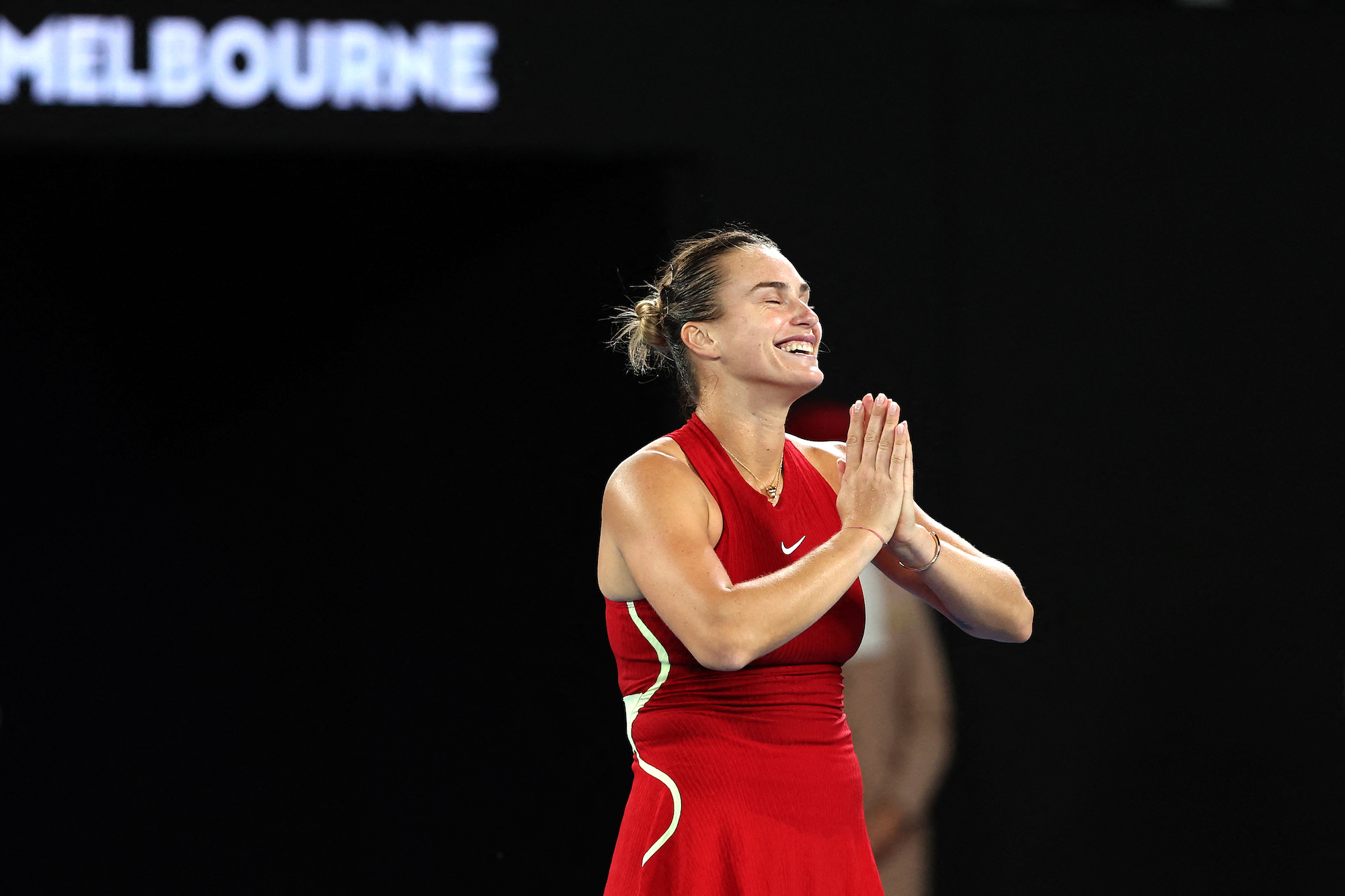The 2023 U.S. Open women's final, while thrilling in its own rickety way, demanded a sequel. The pitch was obvious: What if Coco Gauff and Aryna Sabalenka played their best tennis at the same time, for the entirety of a high-stakes match at a major, and not just for a temporary overlap? There's inherent fun in the matchup, as Sabalenka's offense smashes against Gauff's defense, but nerves understandably left an imprint on that match.
Fortunately, it didn't take long for a followup. Thursday's Australian Open semifinal between the No. 2 seed Sabalenka and No. 4 seed Gauff was a classic: still nervy in patches, but just the right dose for entertainment purposes; excellent technical execution, as both players emerged saying they played much better in this meeting than in their last; and tight enough on the scoreboard to have been up for grabs. Sabalenka won, 7-6(2), 6-4, cementing this as a top WTA rivalry and earning her the right to defend her title.
After Sabalenka's loss in New York, there was no mystery around what she needed to do differently. She'd let her aggression lapse, and Gauff's scrambling movement sapped her confidence further by daring her to go for bigger and bigger risks. By the third set, Sabalenka looked to be panicking, as if she'd misplaced all her favorite go-to shots somewhere between the sofa cushions. That was pretty much her own diagnosis after Thursday's win: "In New York, I played a little bit passive tennis. I didn't put so much pressure on her. I did in the first set, but then I kind of slowed down and started trying to play rallies with her, which is not working well." As Sabalenka explained, that shaped her preparation for this year. "The whole preseason I was working on the approach shots, coming to the net and finishing the point at the net, and I'm super happy that I was able to do that on the court today. I think that's the difference between these two matches."
That difference in approach was palpable from the opening minutes of the semifinal. Sabalenka won eight of the first nine points to open a 2-0 lead, and it was hard to miss her commitment to hitting huge. She moved to the net with conviction, even after botching a volley here and there. Due to rain, the stadium's roof was closed, which tends to provide stiller conditions that ease serving—at least in theory, as there were six breaks of serve in this set. Sabalenka started the match by hitting 16 of 18 first serves, and while she's difficult to manage when she's in that form, Gauff persistently found a way back in. Both players had their own chance to serve for the set—Sabalenka when up 5-3, Gauff when up 6-5—and both players failed to do so. That led them to a tiebreak, which Sabalenka dominated from the jump. She seemed to have determined that the best way to deal with Gauff's speed was to wrong-foot her with full conviction, hitting the ball hard back into the corner she'd just recovered from.
Powerful returners implant doubt in the server's head, and you can almost see them chewing their cud as they try to work through the risk-reward calculus for second serves. Gauff knew a soft second serve was going to get pummeled—Sabalenka demonstrated as much, so many times—but a double fault guarantees doom. Gauff had five aces and eight doubles in this match, and generally faced much more pressure in deuce-packed games (she played 84 points on serve, compared to Sabalenka's 66). After the match, Gauff said she wished she'd varied the placement more on her seconds, because she felt her opponent got too comfortable with the knowledge that the ball was coming to her forehand. Always eerily calm and reflective in these moments, Gauff turns 20 in March; she'll end her teens with a ridiculous 49-17 record in the majors.
Sabalenka's final test came while serving at 3-4, in a 0-30 hole, having after barfed up two backhand errors. That game could've easily flipped the set, and the match, but she recovered with four immaculate, forehand-studded points, and broke serve immediately. The rest of the match was steady-handed, notwithstanding a brilliant Gauff erasure of the first match point. At 25, Sabalenka has become the most reliable performer at the majors, proving that her offense does damage on all surfaces: six straight semifinals, and three finals out of the last five. In Melbourne specifically, Sabalenka has won 26 of her last 27 sets. She'll be the heavy favorite to beat the talented but relatively untested No. 12 seed Qinwen Zheng in Saturday's final.






